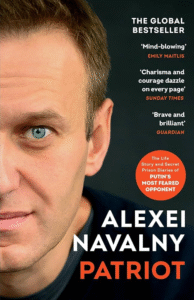A Clash of Titans: Gates, Musk, and the Ethical Divide Over Global Aid
The Stark Accusation: “Killing the World’s Poorest Children”
The recent confrontation between Bill Gates and Elon Musk has transcended the usual realm of billionaire disagreements, escalating into a deeply charged ethical debate. Gates’s accusation that Musk’s advocacy for cuts to US foreign aid is tantamount to “killing the world’s poorest children” highlights a profound philosophical chasm between the two. This exchange underscores the starkly different perspectives on global responsibility and the moral obligations of affluent nations towards those living in extreme poverty.

The Moral and Practical Dimensions of Foreign Aid
The core of Gates’s argument rests on the assertion that US foreign aid, despite its acknowledged imperfections, provides crucial support for essential health and development initiatives in impoverished regions. These programs deliver life-saving interventions, including vaccination campaigns, nutritional support, and disease control, directly impacting the survival of vulnerable children. Musk’s stance, presumably driven by fiscal conservatism and a focus on domestic priorities, is perceived by Gates as a heartless disregard for the plight of the world’s most marginalized. The debate delves into the intricate ethical and practical considerations surrounding foreign aid. Proponents emphasize its role in addressing global inequalities and fulfilling a moral imperative. Conversely, critics argue that aid can foster dependency, fuel corruption, and fail to address the underlying causes of poverty, advocating for alternative approaches.
Gates’s Humanitarian Imperative and Musk’s Libertarian Leanings
Gates’s impassioned rhetoric reflects his long-standing commitment to global health and development, exemplified by the significant philanthropic endeavors of the Bill & Melinda Gates Foundation. His vehement criticism of Musk suggests a profound concern that the erosion of US foreign aid could have catastrophic repercussions for the world’s most vulnerable populations. Musk, known for his contrarian views and challenges to conventional wisdom, presents a contrasting perspective, likely rooted in libertarian principles. This raises fundamental questions about the delicate balance between national interests and global responsibilities. While fiscal prudence is essential, the ethical implications of reducing aid that sustains millions of lives cannot be disregarded.
A Broader Examination of Global Responsibility
The public confrontation between Gates and Musk serves as a powerful reminder of the complex moral and political debates surrounding global poverty. It compels us to examine the tension between competing ideologies and the urgent need for a compassionate and nuanced approach to global challenges. Ultimately, this debate transcends the personalities of two influential figures, prompting a wider discussion about the ethical obligations of wealth and the collective responsibility to protect the lives of the world’s most vulnerable children.




















